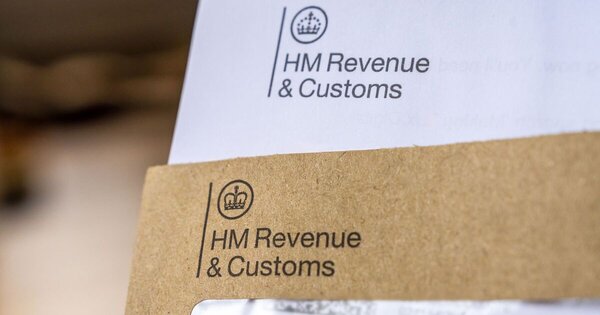Two-Century Legacy Comes to an End
The ironmongers, which had been trading since the 19th century, announced its closure in early 2025, bringing to a close more than 200 years of family business. The shop had become a community fixture, known for stocking traditional hardware items and providing personalised customer service that larger retailers typically cannot match.
The final closure came after the proprietors determined that continuing operations would no longer be financially viable under current economic conditions. Multiple generations of the same family had operated the business, maintaining its traditional character while adapting to changing consumer needs over two centuries.
Impact of Recent Budget Tax Changes
The owners specifically referenced changes announced in the October 2024 Autumn Budget as a critical factor in their decision to close. Chancellor Rachel Reeves unveiled significant alterations to employer taxation that will take effect in April 2025, fundamentally changing the cost structure for businesses employing staff.
Under the new measures, employers will face increased National Insurance contributions and a lowered threshold at which these contributions begin. The business owners calculated that these changes would add thousands of pounds annually to their operating costs, making the already challenging retail environment unsustainable for their independent operation.
National Insurance Increases Affect Small Businesses
The Autumn Budget 2024 included a 1.2 percentage point increase in employer National Insurance contributions, raising the rate from 13.8 percent to 15 percent. Additionally, the secondary threshold at which employers begin paying National Insurance on employee earnings dropped from £9,100 to £5,000 annually. These combined changes represent a substantial cost increase for employers across all sectors.
For small businesses operating on narrow profit margins, such as independent retailers, the additional financial burden can prove decisive. Treasury analysis indicated the measures would raise approximately £25 billion annually for government revenues, making it one of the largest tax-raising measures in recent budgets.
The government did increase the Employment Allowance from £5,000 to £10,500, which provides relief for the smallest employers. However, many small and medium-sised businesses fall outside the scope of full protection from this allowance, leaving them exposed to significant cost increases.
Business Community Responds to Closure
Trade organisations representing independent retailers have expressed alarm at the closure, viewing it as indicative of broader pressures facing traditional high street businesses. Representatives from business groups have called for government reassessment of the tax burden on small employers.
Local community members expressed sadness at losing a historic business that had served multiple generations. Customers praised the personalised service and specialist knowledge that independent hardware stores traditionally provide, services increasingly difficult to find as retail consolidates toward larger chains.
Industry analysts noted that independent retailers face a perfect storm of challenges including rising business rates, increased employment costs, higher energy bills, and competition from online platforms with different cost structures. The closure of longstanding businesses represents not just economic loss but erosion of community character and local employment.
Historic High Streets Under Pressure
The ironmongers' closure reflects wider trends affecting traditional British high streets. Data from the Office for National Statistics shows that independent retailers have declined significantly over the past decade, with accelerated closures following the pandemic and subsequent cost-of-living crisis.
Historic market towns and smaller communities have been particularly affected, as they typically lack the footfall to support multiple competing retailers. When longstanding anchor businesses close, it can trigger further deterioration in local commercial areas. Preservation groups have emphasised that historic shop buildings and traditional trades form important parts of Britain's cultural heritage.
The loss of businesses that have operated for centuries represents irreplaceable erosion of commercial continuity and community identity.
Government Defends Fiscal Policy Decisions
Chancellor Rachel Reeves has defended the tax measures announced in the Autumn Budget, stating they are necessary to address what the government characterised as a £22 billion deficit in public finances inherited from the previous administration.
The Treasury maintains that increased revenues are essential for funding public services and stabilising government finances. Government officials have pointed to the increased Employment Allowance as evidence of support for small businesses, arguing that the smallest employers will actually see reduced National Insurance costs. Ministers have emphasised that tax policy must balance multiple objectives including revenue generation, public service funding, and economic growth.
However, business groups counter that the practical impact on many small and medium enterprises will be severe, potentially leading to reduced employment, limited wage growth, or business closures. Economic forecasters have suggested the tax increases may contribute to slower job creation and modest wage growth through 2025.
Final Summary
The closure of a 200-year-old family ironmongers demonstrates the acute pressures facing independent retailers in the current economic environment. The business owners directly attributed their decision to increased costs resulting from employer National Insurance changes taking effect in April 2025, which they determined made continued operation financially unsustainable.
This historic closure represents not only the loss of a longstanding business but also the erosion of traditional high street character and community connections that independent retailers provide. The case highlights broader challenges for small businesses navigating increased taxation, rising operational costs, and competition from larger retailers with different economic advantages. As similar businesses across the country face identical pressures, the viability of independent retail and the future character of British high streets remain subjects of significant concern.
Government officials maintain that tax increases are necessary for public finance stability, while business representatives warn of damaging consequences for employment and community vitality. The coming months will reveal whether other longstanding businesses can adapt to the new cost environment or whether more historic closures will follow.











